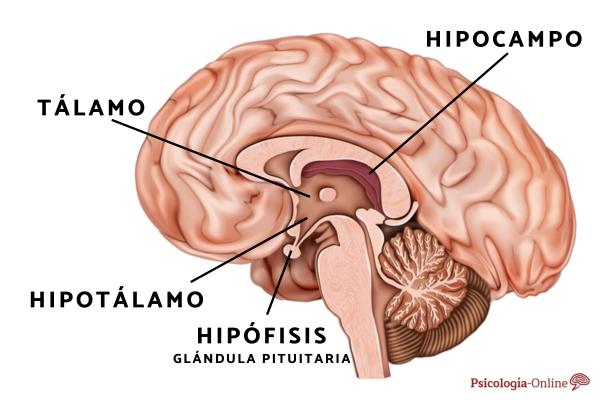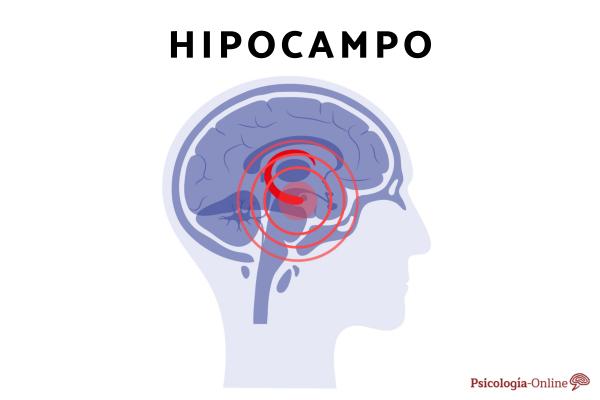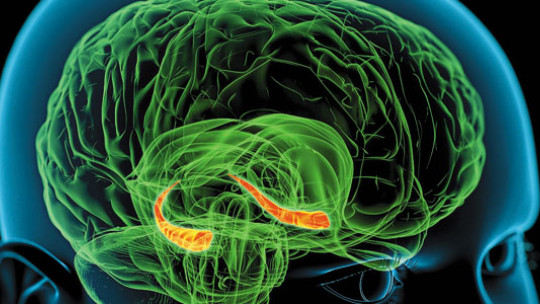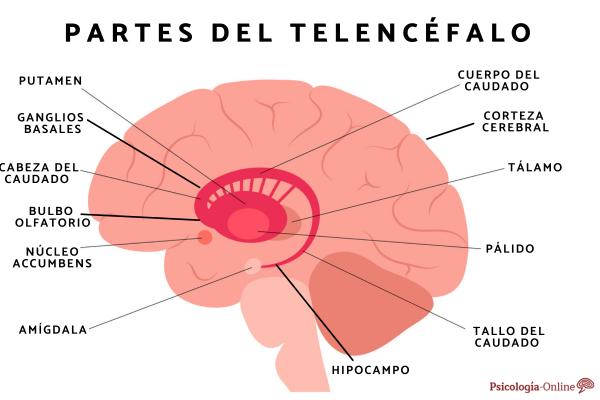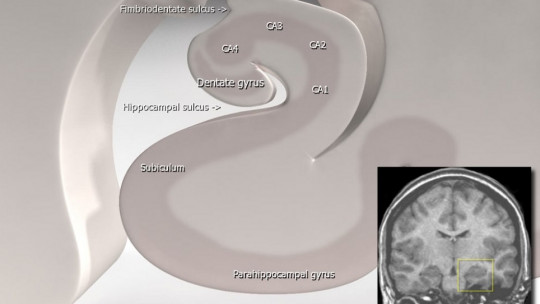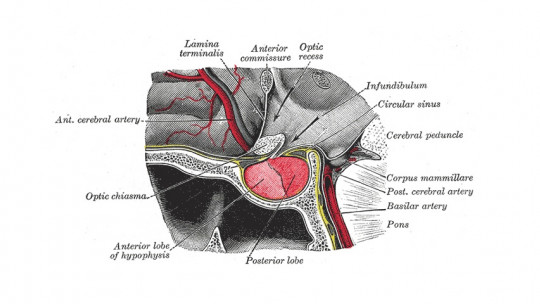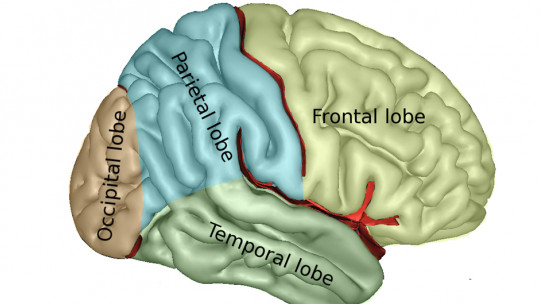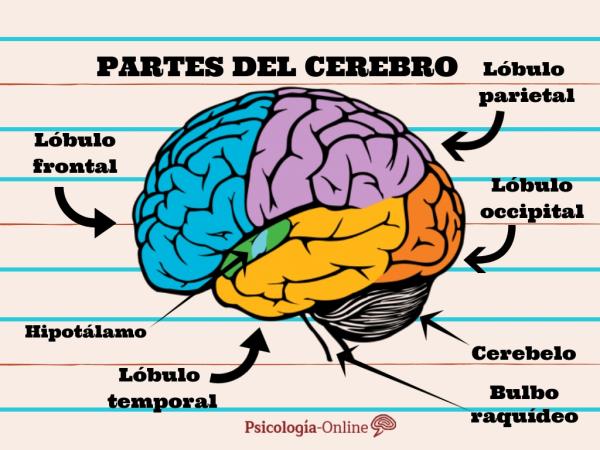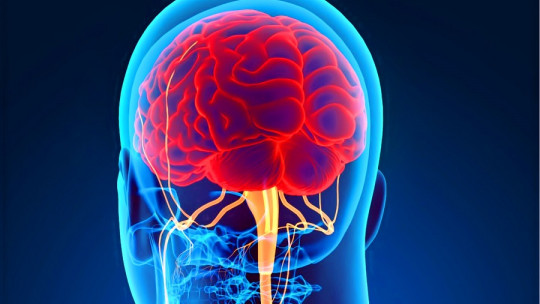The brain is the most complex organ that human beings have. It is made up of infinite parts and its correct functioning is essential for our daily lives. The hippocampus is one of those parts. It has shape of Seahorse and it is involved in a multitude of processes, which is why it is also the cause of many diseases. It is made up of various layers and has a plastic capacity, that is, some parts of it could assume the functions of other parts of the brain that have been damaged.
If you want to know more exactly what What is the hippocampus, what is its function, its parts and what diseases They can arise from an injury or malfunction, keep reading this PsychologyFor article.
What is the hippocampu
The hippocampus, hippocampus in English, It is a part of the cerebral cortex in which neurons condense. Specifically, it is part of what is known as the archicortex, which was one of the first to appear in our evolutionary line. Has a curved and elongated shape that goes from the hypothalamus to the amygdala It is connected to the entorhinal cortex as well as the prefrontal cortex. Likewise, it receives information from the serotonergic, dopaminergic and norepinephrine systems.
Location of the hippocampu
As we have seen, the hippocampus is a structure of the brain, but where exactly is it located? This is located in an inner part of our brain, specifically in the gray matter of the temporal lobe and, therefore, it is part of the limbic system. In the image below you can see exactly where the hippocampus is located.
Parts of the hippocampu
Our brain has two hippocampi, one in each hemisphere That is why we talk about the cerebral hippocampi. In this, what are known as “place cells” or “position cells” have been found. These increase the firing rate when a person or animal is in a certain place so that the environment in which the person is is mentally represented.
A curious fact is that it was previously believed that the hippocampus participated in the correct functioning of smell. It is believed that the only function it has with respect to smell is the memory of odors, although it is not entirely clear.
The hippocampus is a part of the hippocampal formation, which is divided into:
- toothed turn
- Hippocampus
- subiculum
In this article you will find more information about the parts of the brain and their functions.
Functions of the hippocampu
The hippocampus is responsible for various essential functions for human beings:
Memory
What is the function of the hippocampus in memory? The hippocampus has a role as a directory of our memories. That is, they are not stored in it, however, it is responsible for activating or deactivating memories in our mind. Intervenes in the management of the declarative memory but not in the non-declarative one (in charge of movement patterns and manual skills).
Additionally, it is responsible for the consolidation of a memory or not Depending on the emotions produced by a memory or learning, the hippocampus facilitates whether it is permanently inserted into our memory or not.
Spatial functions
The hippocampus intervenes in our perception of space. That is, it participates in the way we see the size of objects and the distance and position in which they are.
Hippocampal disease
Due to its important role in memory, an injury to the hippocampus can cause serious problems this. There are several ways that the hippocampus can be damaged, for example hypoxia, encephalitis or epilepsy in the temporal lobe. Injuries can make it difficult for the person to acquire or retain new memories, that is, amnesia occurs.
- For example, in Alzheimer’s disease the hippocampus is one of the first areas to be damaged. For this reason, memory and orientation problems are the first to appear.
- On the other hand, the hippocampus has countless mineralocorticoid receptors, so stress-related steroids can damage it, causing its neurons to lose their functions and atrophy. This can also occur in situations of severe post-traumatic stress, as is the case with Holocaust survivors.
- In the case of schizophrenia, one of the hypothetical causes is believed to be damage to the hippocampus. This is because it has been seen that in subjects with schizophrenia the size of the hippocampus was smaller. These changes were also seen in subjects who were not medicated. It is also believed that it could have a relationship with the psychotic symptoms of schizophrenia and the long-term memory problems typical of the disease.
- A relationship has also been seen between damage to the hippocampus and some hyperactive individuals, as well as an increase in the feeling of anxiety because it prevents the inhibition of some physical and physiological responses.
This article is merely informative, at PsychologyFor we do not have the power to make a diagnosis or recommend a treatment. We invite you to go to a psychologist to treat your particular case.
If you want to read more articles similar to What is the hippocampus and what is its function? we recommend that you enter our Neurosciences category.
Bibliography
- Apostolova, LG, Zarow, C., Biado, K., Hurtz, S., Boccardi, M., Somme, J., … & Watson, C. (2015). Relationship between hippocampal atrophy and neuropathology markers: A 7T MRI validation study of the EADC‐ADNI Harmonized Hippocampal Segmentation Protocol. Alzheimer’s & Dementia, eleven(2), 139-150.
- López-Pousa S., Vilalta Franch J., Llinàs Reglà J. (2002). Dementia Manual, 2nd Edition. Prous Science, Barcelona.
- Martínez Lage JM, Láinez Andrés JM (2000). Alzheimer’s: theory and practice. Medical classroom editions, Madrid.

